Strictly Personal
Who poisoned the communion? By Sam Omatseye
Published
2 years agoon
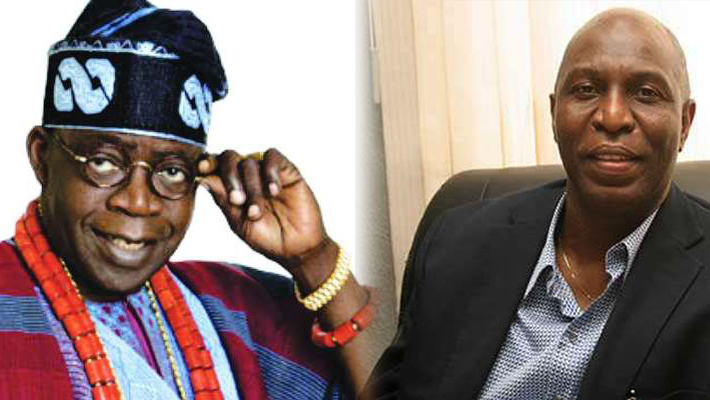
Some say they can’t vote for him because he is ill. But it’s because he makes them ill at ease. They tremble at the compass of his mind and the stature of his legacy. With affectionate defiance on Saturday night, he asked the Kano business community, “Do I look like someone who is sick to you?” He then pointed his finger to his skull, and quipped, “It’s because I am smarter than all of them.” He permitted himself a little swagger.
Asiwaju Bola Tinubu was still floating on the after-waves of ideas at the Arewa Consultative Forum. All who attended attested to his magisterial performance. Not the hegemonic effluvia of Atiku or the incantatory void of Obi. Asiwaju left the place with food for the Nigerian thought when he tackled the question of climate change.
The images of “church rat” and “poisoned holy communion” ruffled quite a few cassocks and their political hangers-on. They mistook it for a cannon against the canon. They claimed he had breached the holy of holies. He was turning the scriptures upside down. How could the holy communion be poisoned? It is holy, and so Tinubu had touched the unclean thing.
They were invoking Christ where he did not invite them. But Christ told them, “I never knew you.” They saw visions without eyes of understanding. The blind leading the blind.
For those who know the Bible, even the holy communion can kill. Hence Apostle Paul said, those who are not worthy should not take it or they will die. So, if we look at what the Catholics call the Eucharist, it is like poison to a defiled soul. The sinner who goes to the bowl with malice takes a poisoned chalice, ditto the adulterous appetite. They may swallow sweet poison. It is a holy death.
The communion then can also stand for purity, including the men of the altar. If prophets can lie and sully the word of God, so can they dispense a poisoned holy communion. It is all within us as humans, whether pastor or laity, to abide by the word. A pure holy communion is no guarantee. It depends on both laity and pastor. A compromised pulpit poisons the communion. A sinful laity courts damnation. Hence Jesus said, when the blind leads the blind, BOTH shall fall into the ditch. Jesus knew this, so he warned of the distinction between his bread and wine and the manna in the wilderness. Those who ate manna in the wilderness later died. His own will give eternal life. So, it is not about the holy communion but who poisoned it and who agreed to eat it. Tinubu says it is the west who added the killing vial. The church rat should not die for the sins of a wayward priest. The west is the priest.
Partisans who know little scripture aped the lead of these vain ecclesiastics. Beware of false prophets.
But what Tinubu was doing had nothing to do with holy matters. But he is asking if we are ready for the manna of the wilderness or the bread of life. He borrowed them as metaphors to show that we are stewards of God’s earth, but we are not subjects but sovereigns as Nigerians. The metaphor of poison is not new. We have the metaphor of poisoned chalice, poison mercury, poison oak, or Poison Ivy. Some are biological and they can, with imagination, become metaphors that picture human experience.
The poisoned holy communion here is the compromised climate or earth. We are the church rat, the innocents who would live but are confronted by the prospect of poison. But what shall we do? We are not compelled, according to Tinubu, to eat the white man’s poison. The world was pristine before the whites began pillaging it. But in doing so, they became rich.
Now, they are affecting climate remorse, and want the whole world, including us, to save the earth from the devastation of industrial man.
But in making their prosperity, they created an unequal world. They enjoy, we toil. Now, says Tinubu, we need to develop and go through the path they followed, so we too can enjoy. But they say no. The world is fragile. It faces apocalypse. No problem, says Tinubu, we can see it ourselves. We want to be rich, too. If they want us not to follow their path, if they don’t want us to burn fuel as they did, attack the ozone layer as they did, let flood wreck us and our rivers and ponds run dry as we are experiencing, let them pay us. If not, we shall, as church rats, do what we shall and allow the holy communion – the earth – to remain a poison. The earth is ours and we all can either perish together or save it together. Know that the church rat is there when the congregation is at home. On Sundays, the poisoned holy communion can kill the whole church with all of them dressed in fancy clothes and stuffed with billionaire offerings. All, both church rat and cassock man, will die. It’s like a terrorist that lobs in a bomb during mass.
Tinubu was exposing western hypocrisy. They have, in the words of poet Alexander Pope, raped the lock. It cannot easily be restored to its original beauty. This is not the first time Tinubu has mused this issue. It is a call to climate and environmental nationalism. What the west is doing is climate imperialism.
We all want good earth. But let us enjoy it equally. The west has been at odds with China over this. Premier Xi is saying what Tinubu is saying. Let us all be rich. They wasted our earth to make them rich. Tinubu knows the value of saving the earth. Before this era of flood fury, Lagos had it decades ago, and Tinubu, as Lagos State governor, confronted the Obj administration that splurged N4 billion a year to pour sands on the Bar Beach. It was a patchwork, not a solution. The thing was eating up Victoria Island like termites. Tinubu developed an idea to turn disaster into prosperity. Today, that swath of earth known as Eko Atlantic makes more money than many states put together. Even the United States is building its biggest embassy on the Eko Atlantic.
But the west must allow us to do it on our own terms. This is no colonial era. When the west started with the industrial revolution, they did not prioritise saving the planet. William Wordsworth, known as the high priest of nature, wrote: “The world is too much with us; late and soon,/ Getting and spending, we lay waste our powers;/Little we see in Nature that is ours;/We have given our hearts away, a sordid boon!”
What Tinubu has done is to stake an idea for economic prosperity and diplomatic tour de force in one phrase. Shakespeare says, “brevity is the soul of wit.”
This is the third lie of the west. The first was what is known as the Treaty of Westphalia at the end of the Thirty Years’ War. It was the genesis of international rule of law. The agreement was to recognize all nations as equal and no one should invade another without cause. It is still a fraught issue as Henry Kissinger tackles the subject in his book, World Order. Same Europe did not even recognize other continents, like African kingdoms, as sovereign. It led to the second lie: they invaded African kingdoms and raided for slaves to build the prosperity of the west. They couched us as savages and societies without civilization. It justified the invasion. Even the Church of England said we had no soul. Yet they sent us the Mary Slessors.
What they are doing now by asking us to abide by climate change is the same as they did when they started industrialism. It was then they knew slavery was inhuman. They stopped it for cynical reasons. To quote again my late teacher, Professor Tunji Oloruntimehin: “The abolition of the slave trade was an act of enlightened self-interest by the Europeans to give the Africans a new role in the international economic system.” Again, they decided to give us our nations, according to their lights. They jumbled peoples together without symmetry of culture and history. Yet, there was no concept of Europe until about the 5th century as the Roman Empire began its decline, and savage tribes invade each other like the Germanic tribes. The west is like the gang leader who becomes a priest because he needs quiet to enjoy his loot.
Climate change is their new apology. They can pay us if we insist, says Tinubu. In the US today, farmers are paid not to farm. The food will waste, so they get paid to do nothing beyond the nation’s capacity. They did not hurt the American farmer. But they hurt us for centuries and this may be Asiwaju’s way of asking for reparations while we heal the earth. As Shakespeare wrote in his play of international intrigue, Antony and Cleopatra, we can make “fancy outwork nature.”
That is Tinubu’s conundrum, a laconic riddle that we expect only from the lips of a genius. He is a financial expert but he has used language that turns professors of literature into their altar.
We can see why they fear Tinubu, and so hate him. He is the one asking the right questions.
You may like
-


Dumping England for Nigeria the best decision of my life— Ademola Lookman
-


Nigeria resumes mining in Zamfara state
-
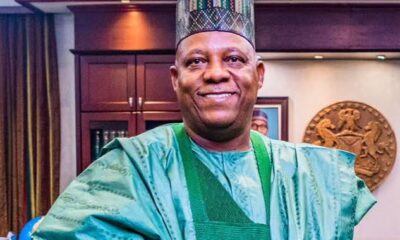

Nigeria’s future is very bright, we’ll overcome challenges, VP Shettima says
-


‘Pray for leaders to serve you diligently,’ President Tinubu tells Nigerians
-


Nigeria on the right path despite hardship, criticism— President Tinubu
-
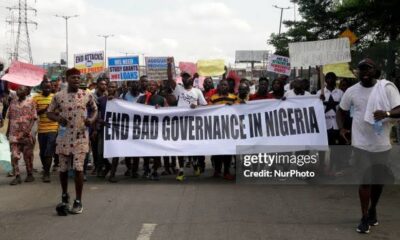

Nigeria: Police dismiss Amnesty Intl’s report on killing of protesters, demand apology
Strictly Personal
Let’s merge EAC and Igad, By Nuur Mohamud Sheekh
Published
4 weeks agoon
November 27, 2024
In an era of political and economic uncertainty, global crises and diminishing donor contributions, Africa’s regional economic communities (RECs) must reimagine their approach to regional integration.
The East African Community (EAC) and the Intergovernmental Authority on Development (Igad), two critical RECs in East Africa and the Horn of Africa have an unprecedented opportunity to join forces, leveraging their respective strengths to drive sustainable peace and development and advance regional economic integration and promote the African Continental Free Trade Area (AfCFTA).
Already, four of the eight Igad member states are also members of the EAC and, with Ethiopia and Sudan showing interest, the new unified bloc would be formidable.
Igad’s strength lies in regional peacemaking, preventive diplomacy, security, and resilience, especially in a region plagued by protracted conflicts, climate challenges, and humanitarian crises. The EAC, on the other hand, has made remarkable strides in economic integration, exemplified by its Customs Union, Common Market, and ongoing efforts toward a monetary union. Combining these comparative advantages would create a formidable entity capable of addressing complex challenges holistically.
Imagine a REC that pairs Igad’s conflict resolution strengths with the EAC’s diplomatic standing and robust economic framework. Member states of both are also contributing troops to peacekeeping missions. Such a fusion would streamline efforts to create a peaceful and economically prosperous region, addressing the root causes of instability while simultaneously promoting trade investment and regional cooperation.
These strengths will be harnessed to deal with inter-state tensions that we are currently witnessing, including between Ethiopia and Somalia over the Somaliland MoU, strained relations between Djibouti and Eritrea, and the continually deteriorating relations between Eritrea and Ethiopia.
The global economy experienced as a result of the COVID-19 pandemic, compounded by the Ukraine war and competing global crises, has strained donor countries and reduced financial contributions to multilateral organisations and African RECs. Member states, many of which are grappling with fiscal constraints, are increasingly unable to fill this gap, failing to make timely contributions, which is in turn affecting key mandate areas of Igad and EAC, and staff morale.
A merger between Igad and EAC would alleviate this financial pressure by eliminating redundancies. Shared administrative systems, integrated programmes, and a unified leadership structure would optimise resources, enabling the new REC to achieve more with less. Staff rationalisation, while sensitive, is a necessary step to ensure that limited funds are channelled toward impactful initiatives rather than duplicative overheads.
The African Union (AU) envisions a fully integrated Africa, with RECs serving as the building blocks of the AfCFTA. A unified EAC-Igad entity would become a powerhouse for regional integration, unlocking economies of scale and harmonising policies across a wider geographical and economic landscape.
This merger would enhance the implementation of the AfCFTA by creating a larger, more cohesive market that attracts investment, fosters innovation, and increases competitiveness. By aligning trade policies, infrastructure projects, and regulatory frameworks, the new REC could serve as a model for others, accelerating continental integration.
The road to integration is not without obstacles. Political will, divergent institutional mandates, and the complexity of harmonising systems pose significant challenges. However, these hurdles are surmountable through inclusive dialogue, strong leadership, and a phased approach to integration.
Member states must prioritise the long-term benefits of unity over short-term political considerations. Civil society, the private sector, the youth, and international partners also have a critical role to play in advocating for and supporting this transformative initiative.
The time for EAC and Igad to join forces is now. By merging into a single REC, they would pool their strengths, optimise resources, and position themselves as a driving force for regional and continental integration. In doing so, they would not only secure a prosperous future for their citizens and member states but also advance the broader vision of an integrated and thriving Africa.
As the world grapples with crises, Africa must look inward, embracing the power of unity to achieve its potential. A combined Igad-EAC is the bold step forward that the continent needs.
Nuur Mohamud Sheekh, a diplomatic and geopolitical analyst based in London, is a former spokesperson of the Igad Executive Secretary. X: @NuursViews
Strictly Personal
Budgets, budgeting and budget financing, By Sheriffdeen A. Tella, Ph.D.
Published
1 month agoon
November 20, 2024
The budget season is here again. It is an institutional and desirable annual ritual. Revenue collection and spending at the federal, State and local government levels must be authorised and guided by law. That is what budget is all about. A document containing the estimates of projected revenues from identified sources and the proposed expenditure for different sectors in the appropriate level of government. The last two weeks have seen the delivery of budget drafts to various Houses of Assembly and the promise that the federal government would present its draft budget to the National Assembly.
Do people still look forward to the budget presentation and the contents therein? I am not sure. Citizens have realised that these days, governments often spend money without reference to the approved budget. A governor can just wake up and direct that a police station be built in a location. With no allocation in the budget, the station will be completed in three months. The President can direct from his bathroom that 72 trailers of maize be distributed to the 36 states as palliatives. No budget provision, and no discussion by relevant committee or group.
We still operate with the military mentality. We operated too long under the military and of the five Presidents we have in this democracy, two of them were retired military Heads of State. Between them, they spent 16 years of 25 years of democratic governance. Hopefully, we are done with them physically but not mentally. Most present governors grew up largely under military regimes with the command system. That is why some see themselves as emperor and act accordingly. Their direct staff and commissioners are “Yes” men and women. There is need for disorientation.
The importance of budget in the art of governance cannot be overemphasized. It is one of the major functions of the legislature because without the consideration and authorisation of spending of funds by this arm of government, the executive has no power to start spending money. There is what we refer to as a budget cycle or stages. The budget drafting stage within the purview of the executive arm is the first stage and, followed by the authorisation stage where the legislature discusses, evaluates and tinkers with the draft for approval before presenting it to the President for his signature.
Thereafter, the budget enters the execution phase or cycle where programmes and projects are executed by the executive arm with the legislature carrying out oversight functions. Finally, we enter the auditing phase when the federal and State Auditors verify and report on the execution of the budgets. The report would normally be submitted to the Legislature. Many Auditor Generals have fallen victim at this stage for daring to query the executives on some aspects of the execution in their reports.
A new budget should contain the objectives and achievements of the preceding budget in the introduction as the foundation for the budget. More appropriately, a current budget derives its strength from a medium-term framework which also derives its strength from a national Development Plan or a State Plan. An approved National Plan does not exist currently, although the Plan launched by the Muhammadu Buhari administration is in the cooler. President Tinubu, who is acclaimed to be the architect of the Lagos State long-term Plan seems curiously, disillusioned with a national Plan.
Some States like Oyo and Kaduna, have long-term Plans that serve as the source of their annual budgets. Economists and policymakers see development plans as instruments of salvation for developing countries. Mike Obadan, the former Director General of the moribund Nigeria Centre for Economic and Management Administration, opined that a Plan in a developing country serves as an instrument to eradicate poverty, achieve high rates of economic growth and promote economic and social development.
The Nigerian development plans were on course until the adoption of the World Bank/IMF-inspired Structural Adjustment Programme in 1986 when the country and others that adopted the programme were forced to abandon such plan for short-term stabilisation policies in the name of a rolling plan. We have been rolling in the mud since that time. One is not surprised that the Tinubu administration is not looking at the Buhari Development Plan since the government is World Bank/IMF compliant. It was in the news last week that our President is an American asset and by extension, Nigeria’s policies must be defined by America which controls the Bretton Woods institutions.
A national Plan allows the citizens to monitor quantitatively, the projects and programmes being executed or to be executed by the government through the budgeting procedure. It is part of the definitive measures of transparency and accountability which most Nigerian governments do not cherish. So, you cannot pin your government down to anything.
Budgets these days hardly contain budget performance in terms of revenue, expenditure and other achievements like several schools, hospitals, small-scale enterprises, etc, that the government got involved in successfully and partially. These are the foundation for a new budget like items brought forward in accounting documents. The new budget should state the new reforms or transformations that would be taking place. Reforms like shifting from dominance of recurrent expenditure to capital expenditure; moving from the provision of basic needs programmes to industrialisation, and from reliance on foreign loans to dependence on domestic fund mobilisation for executing the budget.
That brings us to the issue of budget deficit and borrowing. When an economy is in recession, expansionary fiscal policy is recommended. That is, the government will need to spend more than it receives to pump prime the economy. If this is taken, Nigeria has always had a deficit budget, implying that we are always in economic recession. The fact is that even when we had a surplus in our balance of payment that made it possible to pay off our debts, we still had a deficit budget. We are so used to borrowing at the national level that stopping it will look like the collapse of the Nigerian state. The States have also followed the trend. Ordinarily, since States are largely dependent on the federal government for funds, they should promote balanced budget.
The States are like a schoolboy who depends on his parents for school fees and feeding allowance but goes about borrowing from classmates. Definitely, it is the parents that will surely pay the debt. The debt forgiveness mentality plays a major role in the process. Having enjoyed debt forgiveness in the past, the federal government is always in the credit market and does not caution the State governments in participating in the market. Our Presidents don’t feel ashamed when they are begging for debt forgiveness in international forum where issues on global development are being discussed. Not less than twice I have watched the countenance of some Presidents, even from Africa, while they looked at our president with disdain when issues of debt forgiveness for African countries was raised.
In most cases, the government, both at the federal and state cannot show the product of loans, except those lent by institutions like the World Bank or African Development Bank for specific projects which are monitored by the lending institutions. In other cases, the loans are stolen and transferred abroad while we are paying the loans. In some other cases, the loans are diverted to projects other than what the proposal stated. There was a case of loans obtained based on establishing an international car park in the border of the State but diverted to finance the election of a politician in the State. The politician eventually lost the election but the citizens of the State have to be taxed to pay the loan. Somebody as “Nigeria we hail thee”.
Transformation in budgeting should commence subsequently at the State and federal level. Now that local government will enjoy some financial autonomy and therefore budgeting process, they should be legally barred from contracting foreign loans. They have no business participating in the market. They should promote balanced budget where proposed expenditures must equal the expected revenues from federal and internal sources. The State government that cannot mobilise, from records, up to 40 percent of its total budget from IGR should not be supported to contract foreign loans. The States should engage in a balanced budget. The federal government budget should shift away from huge allocations to recurrent expenditure towards capital expenditure for capital formation and within the context of a welfarist state.
Sheriffdeen A. Tella, Ph.D.
EDITOR’S PICK
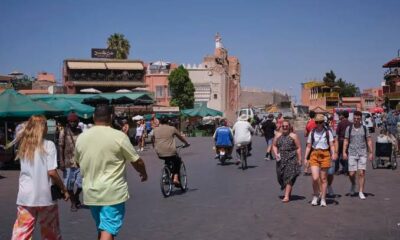

Moroccan tourist arrivals hit record-breaking 16 million
The year 2024 has seen Morocco celebrate a record-breaking 16 million tourist arrivals, surpassing the 12 million mark set in...


Safaricom Ethiopia launches 4G network in Gambella
Ethiopia’s second largest telecom provider, Safaricom Telecommunications Ethiopia P.L.C., has announced the official launching of its 4G network services in...


Dumping England for Nigeria the best decision of my life— Ademola Lookman
Current African Men’s Footballer of the Year, Ademola Lookman, has attributed his rise in the football echelon to his decision...


Zambian NGOs rate President Hichilema’s reforms as not far-reaching
Two Non-Governmental Organizations (NGOs) in Zambia, the Transparency International-Zambia (TI-Z) and the Continental Leadership Research Institute (CLRI), have rated the...
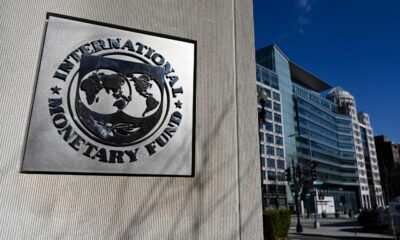

IMF, Egypt reach agreement for fourth review of Egypt’s $1.2 billion loan request
Egypt and the International Monetary Fund (IMF) have reached a staff-level agreement over the fourth review of the Extended Fund...


Libya’s eastern govt accepts petrol subsidy elimination
In a recent statement, the eastern government of Libya claimed it had reached a consensus on a plan to eliminate...


World Bank suspends loan fees for impoverished countries
To lower borrowing costs for vulnerable nations, the World Bank has announced the elimination of several loan fees. The action...
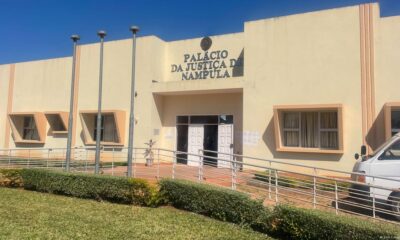

Mozambique’s top court affirms governing party’s victory in recent election
The highest court in Mozambique affirmed Monday that the incumbent Frelimo party won the October election, sparking widespread demonstrations from...


Nigeria resumes mining in Zamfara state
According to the mining minister, Nigeria has removed a five-year restriction on mining exploration in the northwest state of Zamfara,...


Russian Foreign Ministry claims cargo ship sinks in Mediterranean following explosion
The Russian Foreign Ministry reported Tuesday that two crew members are still unaccounted for after an explosion tore through the...
Trending
-

 Politics1 day ago
Politics1 day agoMozambique’s top court affirms governing party’s victory in recent election
-

 VenturesNow1 day ago
VenturesNow1 day agoLibya’s eastern govt accepts petrol subsidy elimination
-

 VenturesNow1 day ago
VenturesNow1 day agoNigeria resumes mining in Zamfara state
-

 VenturesNow1 day ago
VenturesNow1 day agoIMF, Egypt reach agreement for fourth review of Egypt’s $1.2 billion loan request


